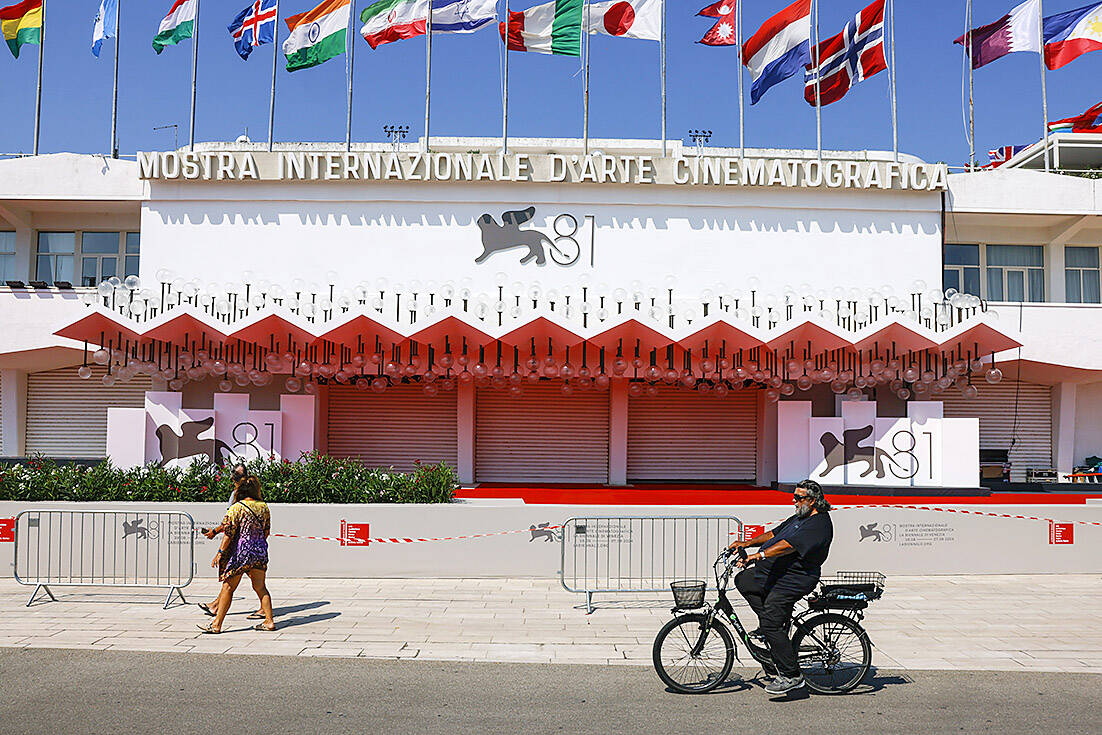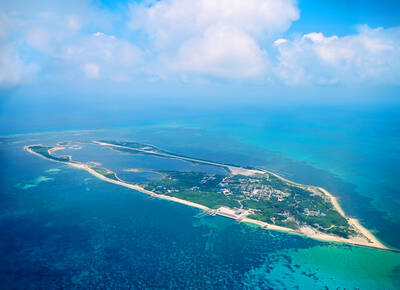A high-calibre cast of Hollywood A-listers are due to descend on Venice’s waterways for this year’s film festival, with George Clooney, Emma Stone, Oscar Isaacs and Julia Roberts starring in films that will premiere on the Lido between Aug. 27 to Sept. 9.
Highly anticipated titles in a hefty lineup include Mexican director Guillermo del Toro’s adaptation of Mary Shelley’s Frankenstein, with Isaacs as the titular protagonist scientist and Saltburn star Jacob Elordi as the monster, as well as Benny Safdie’s The Smashing Machine, featuring Dwayne “The Rock” Johnson as the heavyweight wrestling champ Mark Kerr and Emily Blunt as his wife Dawn Staples.
Greek director Yorgos Lanthimos teams up with actor Emma Stone for their fourth collaboration in a row, after The Favorite, Poor Things and Kinds of Kindness. Bugonia, which also stars Jesse Plemons, is a remake of 2003 Korean sci-fi film Save the Green Planet! by Jang Joon-hwan.

Photo: Invision/AP
Further star-packed films announced by Venice’s artistic director Alberto Barbera on Tuesday morning are Noah Baumbach’s comedy drama Jay Kelly, with a cast that includes Clooney, Adam Sandler, Laura Dern and Greta Gerwig, and artist-film-maker Julian Schnabel’s meta drama about the creative genesis of The Divine Comedy, In the Hand of Dante, which has roles for Al Pacino, Gerard Butler, John Malkovich and Martin Scorsese as an elderly sage who advises Oscar Isaac’s Dante Alighieri.
Indie film legend Jim Jarmusch, a surprise absence from the Cannes lineup this May, is for the first time competing for a Golden Lion with anthology film Father Mother Sister Brother, starring Adam Driver, Charlotte Rampling, Cate Blanchett, Vicky Krieps and long-time Jarmusch collaborator Tom Waits.
“Cannes had always prevailed,” said Barbera at Tuesday’s press conference. “We have him this year.”
STAGING A COMEBACK
In recent years Cannes has gone some way to reclaim its status as the world’s premier springboard for serious films with an eye on the box office, launching accoladed and commercially successful titles including Sean Baker’s Anora, Justine Triet’s Anatomy of a Fall and Jonathan Glazer’s The Zone of Interest. Yet with few obvious arthouse-to-mainstream crossover contenders emerging from the Croisette this year, Venice may feel it has earned a comeback.
Veteran US director Gus Van Sant will come to Venice with historical kidnapping drama Dead Man’s Wire, while Hurt Locker director Kathryn Bigelow sweeps into town with geopolitical thriller The House of Dynamite starring Idris Elba.
There are also new works from noted European directors. Oscar-winning Hungarian auteur Laszlo Nemes comes to Italy with Orphan, a drama set after the 1956 revolt against Soviet rule that Barbera described as the director’s “most personal film to date, because it is based on his father’s memories”. There will be a competition premiere for French director Francois Ozon’s black-and-white L’Etranger, the third cinematic adaptation of Albert Camus’ novel, following Luchino Visconti’s 1967 version and Zeki Demirkubuz’s 2001 Turkish telling.
Jude Law is starring in the unlikely role of Vladimir Putin in Olivier Assayas’s The Wizard of the Kremlin, a film that examines the Russian president’s rise as seen by his spin doctor, played by Paul Dano. Italy will be represented by Luca Guadagnino’s After the Hunt — a London-shot college drama starring Julia Roberts, Andrew Garfield and Chloe Sevigny — and the ever-productive Paolo Sorrentino’s La Grazia, previously announced as the festival’s opening film.
Venice, which has a reputation as the least overtly political of the “big three” European film festivals, is not shying away from recent geopolitical events this year. In the main competition, Tunisian director Kaouther Ben Hania’s The Voice of Hind Rajab tells the real-life story of a five-year-old Palestinian girl who was killed when a vehicle carrying her family was shelled by Israeli forces in January last year.
German film-maker Werner Herzog, Russian director Alexander Sokurov and US investigative journalist Laura Poitras lead a notably strong non-fiction line-up. Herzog, who will receive a lifetime achievement at Venice, will also be showing his new film Ghost Elephants, about a mythical herd of the animals roaming the jungles of Angola.
Poitras, a leading chronicler of post-9/11 digital surveillance practices, will premiere Cover-Up, a portrait of Seymour Hersh, the American journalist who gained acclaim in 1969 for exposing the My Lai massacre but whose use of anonymous sources in recent reports have been viewed more critically.
Russian Ark director Sokurov will showcase experimental Director’s Diary, a five-hour work that Barbera said “isn’t easy to follow,” while Sofia Coppola is going to present a doc on fashion designer Marc Jacobs, Marc by Sofia.
This year’s Venice jury will be presided over by US director Alexander Payne, and includes exiled Iranian film-maker Mohammad Rasoulof, Brazilian actor Fernanda Torres and Romanian director Cristian Mungiu among others.

Late last month Philippines Foreign Affairs Secretary Theresa Lazaro told the Philippine Senate that the nation has sufficient funds to evacuate the nearly 170,000 Filipino residents in Taiwan, 84 percent of whom are migrant workers, in the event of war. Agencies have been exploring evacuation scenarios since early this year, she said. She also observed that since the Philippines has only limited ships, the government is consulting security agencies for alternatives. Filipinos are a distant third in overall migrant worker population. Indonesia has over 248,000 workers, followed by roughly 240,000 Vietnamese. It should be noted that there are another 170,000

Enter the Dragon 13 will bring Taiwan’s first taste of Dirty Boxing Sunday at Taipei Gymnasium, one highlight of a mixed-rules card blending new formats with traditional MMA. The undercard starts at 10:30am, with the main card beginning at 4pm. Tickets are NT$1,200. Dirty Boxing is a US-born ruleset popularized by fighters Mike Perry and Jon Jones as an alternative to boxing. The format has gained traction overseas, with its inaugural championship streamed free to millions on YouTube, Facebook and Instagram. Taiwan’s version allows punches and elbows with clinch striking, but bans kicks, knees and takedowns. The rules are stricter than the

“Far from being a rock or island … it turns out that the best metaphor to describe the human body is ‘sponge.’ We’re permeable,” write Rick Smith and Bruce Lourie in their book Slow Death By Rubber Duck: The Secret Danger of Everyday Things. While the permeability of our cells is key to being alive, it also means we absorb more potentially harmful substances than we realize. Studies have found a number of chemical residues in human breast milk, urine and water systems. Many of them are endocrine disruptors, which can interfere with the body’s natural hormones. “They can mimic, block

Pratas Island, or Dongsha (東沙群島) had lain off the southern coast of China for thousands of years with no one claiming it until 1908, when a Japanese merchant set up a facility there to harvest guano. The Americans, then overlords of the Philippines, disturbed to learn of Japanese expansion so close to their colony, alerted the Manchu (Qing) government. That same year the British government asked the Manchus who owned the island, which prompted the Manchu government to make a claim, according to South China Sea expert Bill Hayton. In 1909 the government of Guangdong finally got around to sending